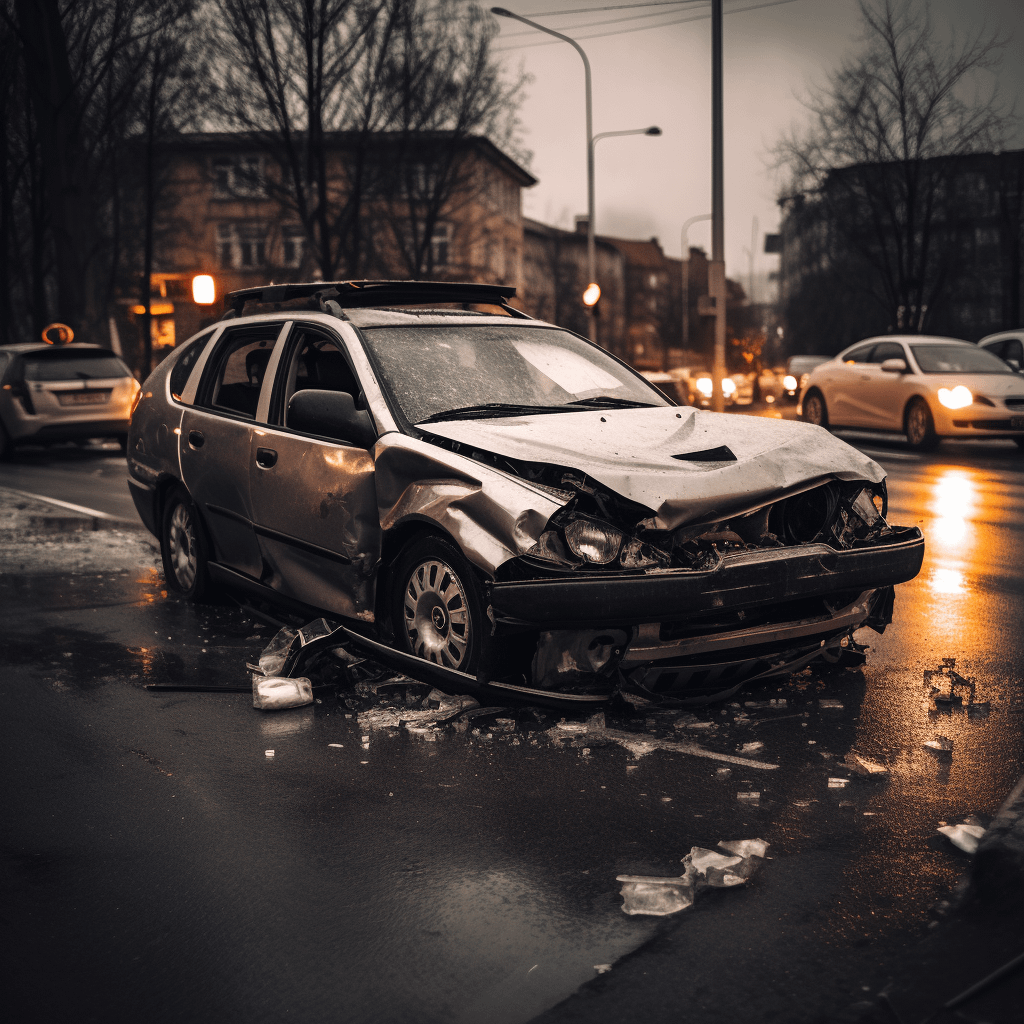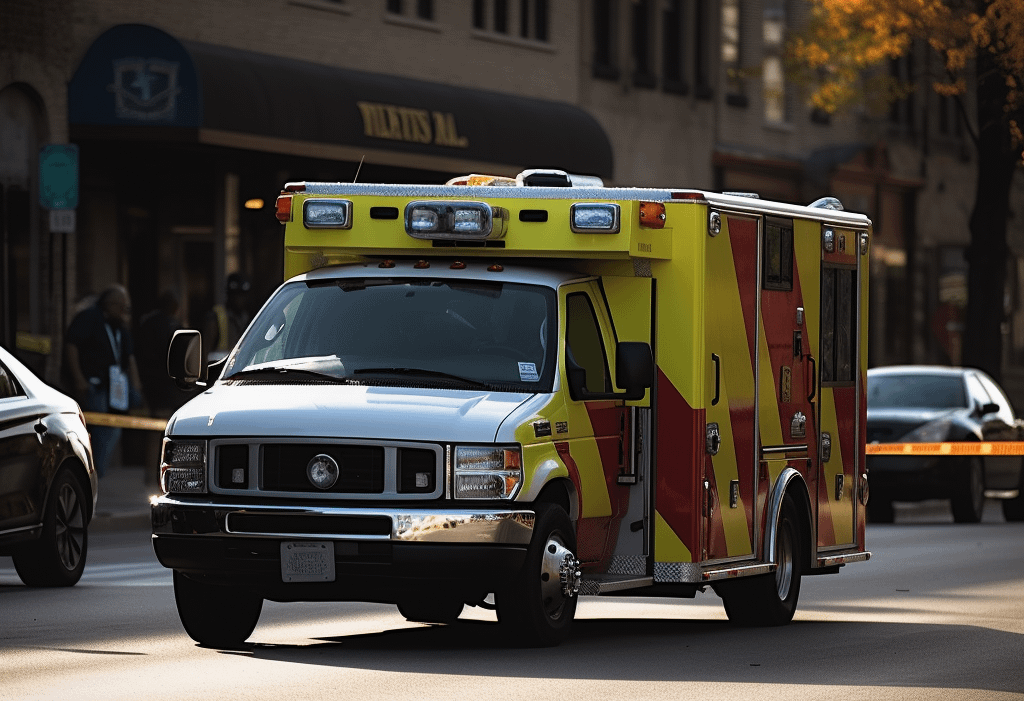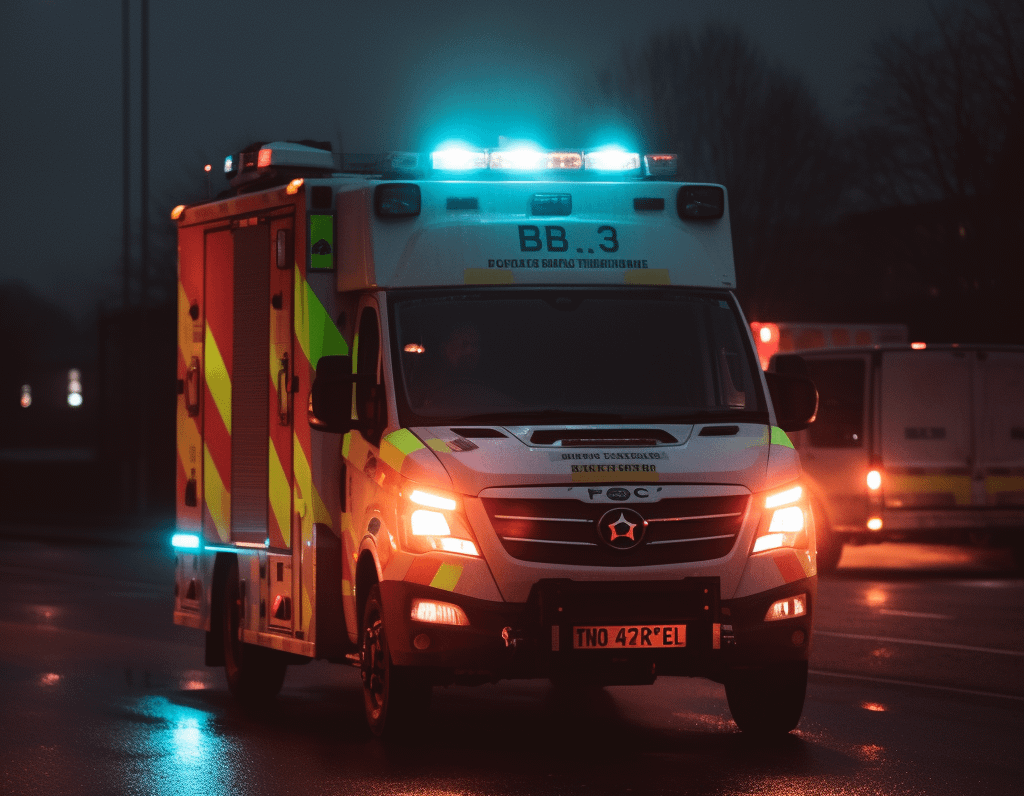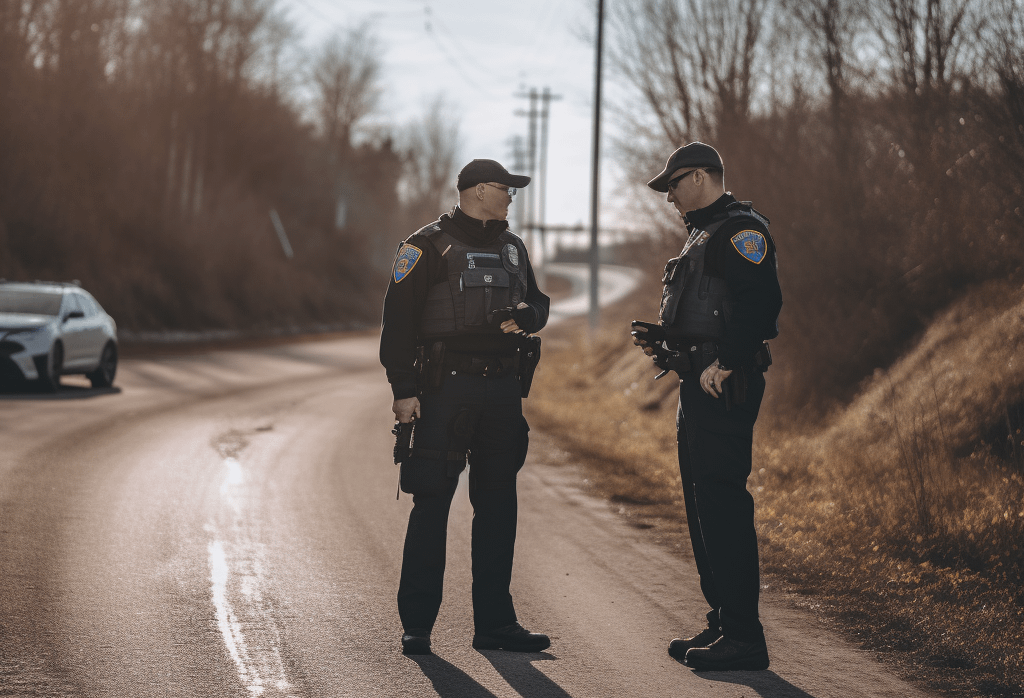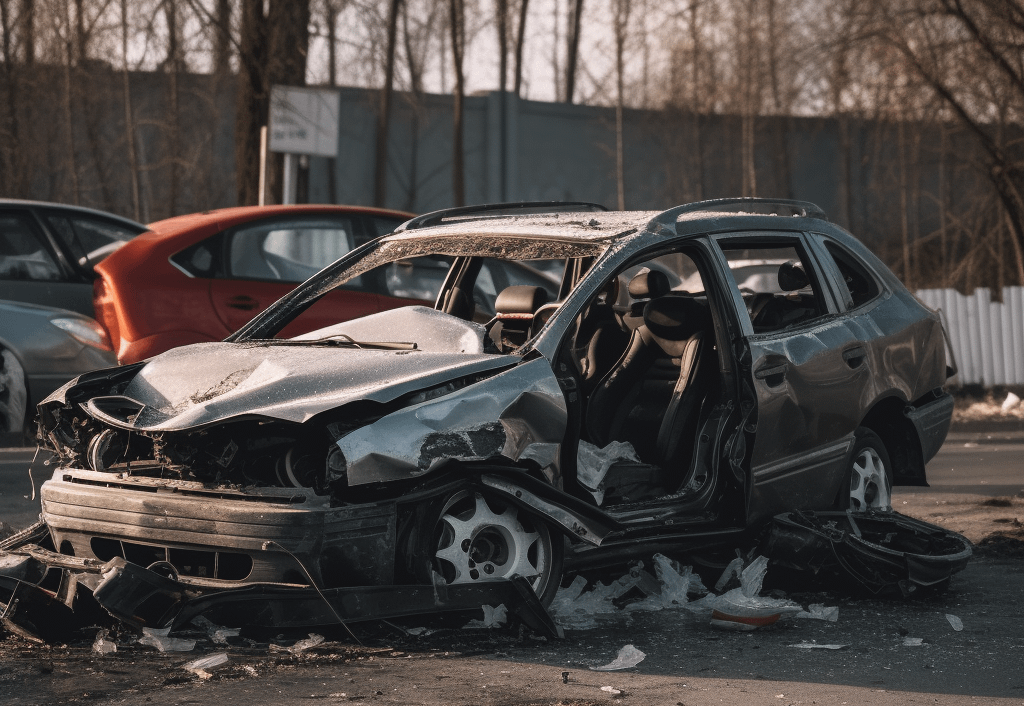Worried about what to do after a car accident? You are not alone. Car accidents cause over one million injuries in the United States every year. On average, around three million car accidents also result in property damage. And unfortunately, between 2020 and 2021, there was an overall rise in fatal car accidents in 44 out of 50 states.
If you were injured in a car accident, you may be worried about medical bills, returning to work, and how to get the compensation you need to cover any number of unexpected costs. All of these concerns can build up, when what you need to be most focused on is healing and your own recovery needs. CarAccident.Law offers resources to connect you to expert advice from professional car accident attorneys who are ready to assist with your case.
What Happens When You Are Hurt in a Car Accident?
When you are hurt in a car accident, you likely have many new questions and concerns that you have never had to think about before. The most important first step is to seek medical attention. If you are hurt, do not let worries about cost deter you from seeking medical help. Many Americans avoid the emergency room, an ambulance ride, or even a checkup later on due to worries about the cost. Nearly one in four Americans report skipping medical care visits regularly to avoid the cost. Additionally, 15% of Americans report having someone in their household who is avoiding seeking medical care because of the high price.
Avoiding medical attention after a car accident is a critical mistake for many reasons. Most importantly, you may not immediately realize the severity of your car accident injuries and could risk further injury if you do not seek medical care. Whether you are suffering from broken bones, lacerations, or more, seeing a doctor should be your first priority after a car crash. You may need professional medical attention to receive the treatment you need to heal. For example, a medical professional will be able identify invisible injuries such as internal bleeding or brain injuries.
Additionally, when it comes to recovering compensation by filing a car accident lawsuit or insurance claim, a main category of cost that you can recover is your medical bills and necessary care after the collision. If you have put off seeing a medical professional, you may find yourself at a disadvantage when it comes to proving the extent of your injuries – specifically, whether they are severe enough to warrant compensation. Documenting your injuries, how they occurred, their progression over time, and their impact on your day-to-day life is an important step in the aftermath of a car crash. When you are at the doctor, be sure to go into detail about what occurred and how you are feeling. Any slight pains or minor concerns after a crash may return later as more complex problems. If you fail to seek medical care, or fail to mention your symptoms to a doctor, claiming compensation for your injuries through a car accident lawsuit or insurance claim will become exponentially more difficult.
Common Injuries after a Car Accident
As a driver in America, your odds of being injured in a car accident are fairly high. One car insurance study found that 77% of drivers have been in at least one auto collision over their lifetimes. During a 1,000 mile road trip, your chances of getting injured in a car accident are one in 366. Additionally, the average driver files a motor vehicle accident report every 17.9 years. This means that every driver who becomes licensed at 16 will likely be involved in some kind of car accident by the age of 34.
Luckily, not every car accident involves traumatic injuries. Some are mild or only cause repairable property damage. Unfortunately, there are also more severe accidents, including many that may cause lasting health issues, or even fatalities. Some of the most common injuries after a car accident include:
- Traumatic brain injuries: Head injuries come in many forms and may result from blunt force trauma or penetration through the skull. Some are relatively minor, such as a concussion, whereas others may require lifelong medical care. For any brain injury, or even a suspected TBI, it is important to seek medical care right away. Only a doctor can properly evaluate the extent of the damage and what steps need to be taken.
- Spinal cord injuries: Spinal cord injuries can be debilitating outcomes from a car accident. Even milder spinal cord issues, such as whiplash, can cause tremendous pain and difficulty returning to work.
- Broken bones: Some car accidents have enough force to break a person’s bones, which can result in substantial medical costs and lost wages due to an inability to return to work for a time.
- Lacerations: Debris inside the car or airbag and seatbelt burns can leave a person injured and shaken up after a car accident.
- Facial injuries: Many individuals involved in car accidents suffer facial injuries, specifically to the eyes, due to broken glass and other debris.
- Mental trauma: Car crashes can be traumatic and can leave a person with mental scars that make it hard for them to return to normal function after an accident.
What Should I Do after a Car Accident that Was Not My Fault?
If you’re at the scene of a car accident, the first thing you should do is seek medical attention. If you are able to, call 9-1-1 to get police and paramedics on scene as soon as possible. Once paramedics arrive, seek care from them, then you’ll need to file an accident report with the police officers who arrive on scene.
It is crucial to avoid making any admissions of guilt, both at the scene of the accident and later when you’re on the phone with insurance. Do not apologize to the other driver or anyone else involved, do not even vaguely imply to law enforcement or paramedics that you are in any way responsible for what happened.
If you can, take photos and videos of the accident scene, including any poor road conditions or bad weather that may have contributed to your accident. It is also advisable to get the contact information of any eye witnesses who are at the scene.
When your actions did not cause or contribute to the car accident, you may be able to file a claim for compensation through civil court or on the insurance of the other driver who did cause the accident. Their insurance will cover some of your medical costs, auto repair bills, missed wages, and possibly more. Different states, however, have different legal procedures for how to file for compensation after a car accident. Some states, such as Massachusetts, are considered to be no-fault states.
In Massachusetts and other no-fault states, every driver involved in an accident files a claim through their own auto insurance first before turning to the other party’s coverage. Drivers in no-fault states must carry a mandatory minimum amount of Personal Injury Protection as part of their no-fault auto insurance policy. Only in cases involving more severe accidents, or when their own coverage is exhausted, would a driver have to file a claim through the at-fault driver’s insurance.
Some no-fault states impose severity thresholds on a person’s right to sue an at-fault driver for compensation. This may require you to show proof of substantial injury and/or financial loss before you can file a car accident lawsuit in civil court. Otherwise, any injuries and damages suffered in a car accident caused by someone else’s carelessness or violation of traffic laws may qualify you to sue the at-fault driver for compensation. Let an auto accident attorney guide you through the laws that govern your situation and help ensure that you are not leaving any potential compensation on the table.
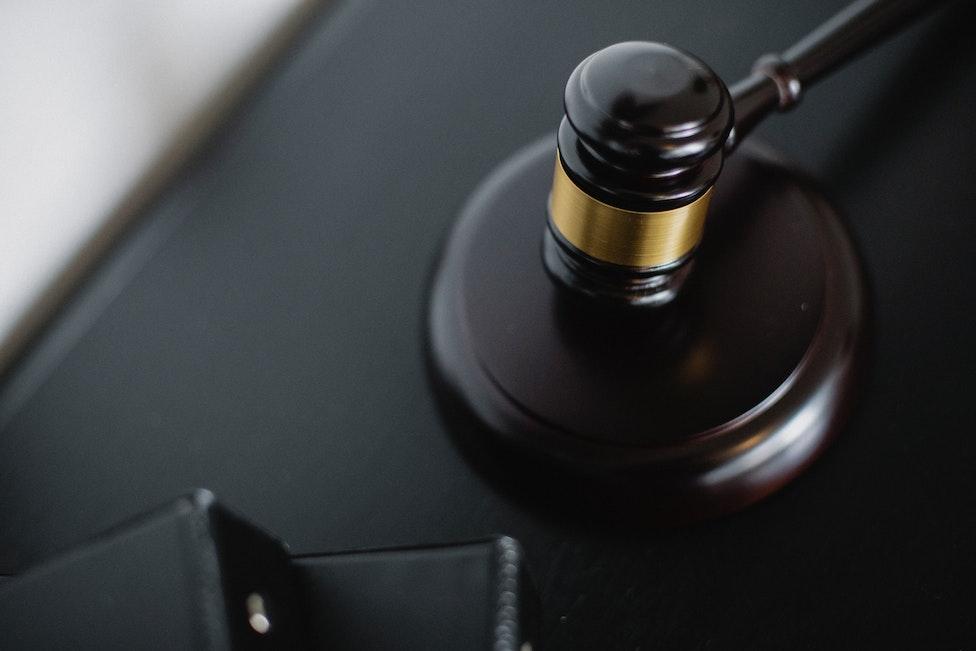
Learn about filing a lawsuit after being injured in a car accident
STEP-BY-STEP GUIDE TO FILING A CAR ACCIDENT LAWSUIT
Here’s our guide to filing a civil lawsuit after being injured in a car accident. Work with a lawyer to avoid missing out on any potential compensation after an accident.
What to Do when Injured in a Car Accident as a Passenger
If you were injured in a car accident as a passenger, you can still collect compensation from insurance to cover your accident related costs. In a no-fault state like Massachusetts, the driver of the vehicle you were in at the time of the collision is liable for your damages, and their insurance will extend to cover you and any other passengers who were in their car during the accident. If the accident was the result of another driver’s negligence, you may be able to seek additional compensation by filing a claim through their insurance. If your injuries are severe enough, you may also be able to file a car accident lawsuit against the at-fault driver to recover any damages which are not covered under their insurance.
When you are a passenger injured in a car accident, you may have an easier time collecting compensation since you were not in control of the vehicle at the time of the crash. Unlike the drivers involved, it is very unlikely that a passenger will be criticized for their role in causing an accident. However, you may still benefit from speaking with a car accident attorney to ensure that your own costs and losses are reimbursed and that you are not short-changed by insurance simply because you are not the policy holder.
What to Do when a Family Member is Critically Injured in a Car Accident
When a family member is injured in an auto accident, you may need to take certain steps on their behalf. They may need help seeking medical care, filing a police report for the wreck, filing a an auto insurance claim, and putting together a lawsuit for any additional compensation. When a loved one needs help, it can be tempting to drop everything else and attend to their needs.
A car accident attorney can help take some of the burdens off your shoulders so you can focus on your loved one. A lawyer will take care of evidence gathering, damage assessments, witness interviews, hiring experts, and more. You can help ensure that your loved one is receiving the treatment they are prescribed, and try to document the process as much as possible. You can then turn over these details to a car accident attorney, who can oversee filing the claim and a potential lawsuit on your loved one’s behalf.

My Child Was Injured in a Car Accident, What Should I Do?
In most states, including Massachusetts, a minor cannot file a lawsuit, nor can they sign a legally binding settlement agreement, such as with an insurance company. But, can a parent sue on behalf of their child if they were injured in a car accident? Absolutely. Most lawsuits involving injuries to minors involve an adult, usually a parent or guardian, who sues on their behalf. Additionally, most settlements involving minors who have been injured will undergo a period of judicial review. This extra step helps ensure that the funds received will go to benefit the child, or in some cases, kept in trust until the child is old enough to access them.
Injured in One of these Crash Types?
What to Do when Injured in a Car Accident while Working
If your motor vehicle accident occurred while driving for work, you may have to take certain steps other than filing an insurance claim or accident lawsuit to obtain compensation. Specifically, you may need to file a claim on your company’s insurance. Known as workers’ compensation, this type of insurance may allow you to receive payments while you are out of work recovering.
Because being injured in a car accident while working can be so complex, it is strongly advised that you seek legal counsel immediately after a workplace car accident or after reporting such a collision to your supervisor. For example, whether or not the accident took place in a company-owned car or truck, or in your own vehicle may impact the outcome of your case.
Examples of on-the-job car accident scenarios that may qualify for additional compensation include:
- Commuting from one job site to another
- Transporting another employee for business reasons
- Running an errand for an employer
- Making scheduled deliveries
- Traveling out of state for a conference or other business reason
- Any kind of reimbursable travel for your employer
- Rideshare accidents, such as those involving Uber or Lyft
If you are involved in a car accident while out-of-state, most auto insurance policies will adjust coverage to align with the local law where the accident took place. You may also be able to file a car accident lawsuit against the other party in the state where the accident occurred. Your claim must comply with the state’s liability, negligence, and statute of limitations parameters, which is another for enlisting the help of a local lawyer who would be familiar with such procedures.
In more complicated cases where both parties involved in an accident are out-of-state drivers, it may be possible to file a lawsuit in the at-fault driver’s home state if they consent to it. It is best to discuss your legal rights and options with an attorney in your area to ensure you don’t miss out on any opportunities for compensation that may be available to you.

Should You Go to the Hospital if Injured in a Car Accident Out-of-State?
If you are injured in a car accident, you should get medical help as soon as possible no matter what. Even if it means going to an emergency room in a state you’re not familiar with, you need to do whatever it takes to ensure that you get the care you need. Now is not the time to worry about the cost. Seeking timely medical care can mean the difference between life and death after a car crash.
It is also important that you receive all the diagnostic tests you may need after a crash. If paramedics or a doctor is concerned about internal bleeding, fractures, or any other kind of injury that imaging scans may clarify, do not wait until you are back in your home state to get answers. The closer to the accident that diagnostic testing is performed, the easier it will be to prove that your injuries are related to the crash, which can make all the difference when it comes to recovering your medical costs. If you wait until you have returned home, insurance may argue that your injury was caused or exacerbated by the subsequent travel, and that the full cost of your medical care should therefore not be reimbursed. Do not give an unscrupulous insurance agent an opening to try to disprove your injury and offer you a lower amount to protect their own bottom line.
What to Do after a Minor Car Accident
In some states, including Massachusetts, you are legally required to file a car accident report with law enforcement within a certain amount of time if the crash resulted in death, injury, or property damage over a certain amount. Filing this report is the responsibility of the driver, or the owner of the car if the driver is incapacitated.
Even if the crash seems relatively minor, it still may be in your best interests to file a report with law enforcement all the same. You never know when the other driver may try to seek a settlement for injuries that develop later on, or when repair costs may reach the limit. Filing a police report ensures that the facts are written down while memories are fresh, which can be used as evidence later on in a claim for compensation.
You should also report the accident to your insurance company, or the other driver’s insurer, depending on the accident liability laws in your state. They will likely require you to submit your car for inspection with a covered mechanic. They may pay for the cost of repairs, or send you a check for the amount of the damage, and you will have the option to proceed with repairs in the event of minor bumps and scratches.
When in doubt, see a doctor and speak with a car accident attorney. Even the mildest car accident injuries may cause lasting concerns down the road.
Can You Sue Even if You Are Not Injured in a Car Accident?
Not all car accidents result in injury. If you are not injured in a motor vehicle accident, can you still get reasonable compensation through a lawsuit?
The answer depends on state law, as well as the extent of your damages. For instance, if an auto collision causes property damage that is not covered by your insurance, some states may allow you to sue the at-fault driver for compensation. Your case may qualify for small claims court, or for a civil lawsuit if your claim exceeds small claims court limits.
Additionally, a car accident can be a traumatic life event. If you find yourself incurring costs for therapy to treat Post Traumatic Stress Disorder (PTSD), or to learn to cope with a new fear of driving and heightened anxiety after a crash, you may have a valid claim for compensation.
No two car accidents are alike, and the toll they take on those involved can vary as well.
In general, when bringing a car accident claim, the following points are key to establishing liability:
- The other driver behaved unreasonably;
- The other driver’s negligent actions caused the accident; and
- You suffered damages because of the accident.
What if I Am Injured in a Car Accident and the Car is a Recall?
Millions of Americans rely on their cars every day to get them from place to place safely. If you received a notice about a recall on your car, you may be uncertain about how to handle the situation. If you were injured in a car accident and your car has an active recall on it, you may be able to pursue compensation from additional sources. Specifically, it may be possible to sue the manufacturer of the defective vehicle or car part, as well as the other driver involved in your accident, if both parties’ negligence caused or contributed to your injury. For instance, in cases involving faulty air bags, brakes, or other crucial safety mechanisms, car manufacturers may be ordered to cover medical costs for drivers who suffer harm as a result of their defective car parts. If any part of your car did not function correctly to help protect you during a crash, you may have a valid case against the manufacturer.
When in doubt, contact CarAccident.Law to get connected with an accident injury attorney. Auto manufacturers have an obligation to the public to answer for their mistakes and negligent design or construction. If you were hurt in a car accident with a recall, let us investigate potential sources of compensation for you.
According the National Highway Traffic Safety Administration, motor vehicle crashes overall cost the American public nearly $340 billion in 2019 alone. With such a high price tag, you might be wondering how these medical bills get paid after a crash.
There are currently 12 states in the US with no-fault laws on the books. They are Florida, Hawaii, Kansas, Kentucky, Massachusetts, Michigan, Minnesota, New Jersey, New York, North Dakota, Pennsylvania, and Utah. Additionally, drivers have the option for no-fault insurance coverage in Kentucky, New Jersey, and Pennsylvania. In these states, your own insurance would typically cover your medical bills and expenses after a crash. In other states, the other driver’s insurance may be responsible for reimbursing your medical bills.

What Can You Do if You Are Injured in a Car Accident by an Uninsured Driver?
If you are injured in an accident with a hit and run driver or with an uninsured driver, you may wonder how you can get compensated for your medical bills. By law, most insurance companies are required to offer uninsured motorist coverage as part of your own coverage. However, outside of no-fault states, you may not be legally required to accept this supplemental coverage.
If you have purchased Uninsured Motorist coverage – as well as Uninsured Motorist Property Damage coverage, which is often separate – you may be able to turn to your policy for help with your medical costs. Your Personal Injury Protection, if applicable, can also help reimburse your medical costs.
In general, it may be difficult to collect from an uninsured driver through a lawsuit, as they may not have many assets available to collect on a judgement. However, their negligent actions should still be held accountable for your injuries and damages. An experienced auto accident lawyer in our extensive attorney network will have handled similar cases before and can strategize ways to help you recover costs from an uninsured or underinsured motorist.
For instance, in some cases, even an uninsured motorist driving an insured vehicle may be covered under the vehicle owner’s policy. In this case, you may be able to collect on the car owner’s insurance policy, regardless of the driver’s insurance status. Before you write the situation off, consult with a car accident attorney to ensure that you are doing everything you can to collect on a situation involving a hit and run or uninsured driver.
Insurers may offer different caps on how much they will pay for your medical bills versus to repair your car. If you have purchased auto collision or comprehensive insurance, compensation for the cost of repairs will usually come from this kind of insurance coverage as opposed to personal injury or bodily injury coverage.
Your auto insurance may not cover all kinds of vehicle repairs after an accident, unless they are related to a covered peril. Let an attorney consult with your insurer on your behalf to take full advantage of your policy and the coverage it offers.

If You’re Driving a Borrowed Car and Your Passenger is Injured in an Accident, Who Pays?
When borrowing a car, you may wonder whether the insurance coverage comes from the driver’s policy, or the policy on the car itself. The answer can be especially important when an accident occurs and someone is injured.
Car insurance law, and how drivers are covered in an accident, varies from state to state. In Massachusetts, for example, the insurance policy tends to follow the car and not the driver. This means that even in a borrowed car, the car owner’s insurance policy will typically cover some of the cost of the accident. Additionally, household members are covered by auto insurance, even when they are passengers and not the driver. In at-fault states, the at-fault driver is usually responsible for compensating the medical costs of all injured parties, including passengers.
What if I Am Injured in a Car Accident and Have No Health Insurance?
Under the Emergency Medical Treatment and Labor Act of 1986, patients cannot be turned away from an emergency room because of their inability to pay.
Emergency medical staff are required by law to provide a screening and stabilizing care. Because of this, if you are injured in a car accident and are experiencing a medical emergency, do not hesitate to seek medical care.
If you have no health insurance and are worried about affording your car accident medical bills, contact your state’s Medicaid office to see if help is available.
When it comes to recovering costs from a car accident, you may still be able to file a claim on the other party’s auto insurance if their negligence caused or contributed to your injuries. Get in touch with CarAccident.Law for help with these complicated steps.
In Massachusetts, you have five days to report any car accident involving an injury, death, or $1,000 or more in property damage. This reporting deadline varies from state to state, so be sure to check the reporting requirements in your state. Otherwise, the deadline to file a lawsuit after a car accident in Massachusetts is three years from the date of injury, under the current statute of limitations. Lawsuit filing deadlines also vary from state to state any may be shortened or extended depending on certain factors. Consult with a professional car accident attorney in our network to ensure that you are within compliance.

How Much is the Average Car Accident Lawsuit Settlement?
If you are injured in a car accident, how much you can expect to receive in compensation will depend on a number of factors. Some variables include the severity of your injury, whether and to what extent your actions contributed to the accident, the other driver’s behavior and driving history, any ongoing medical concerns related to the event, and more. Use CarAccident.Law’s car accident settlement calculator to get a better understanding of your total losses.
Case Calculator
Evaluate your claim in as little as 30 seconds

What Kind of Lawyer to Get if You’re Injured in a Car Accident
If you were hurt in a motor vehicle accident, help is available through CarAccident.Law. No one should have to go through the process of filing for compensation, understanding what amount is appropriate, and compiling a strong case while also recovering from a traumatic auto accident. If you were injured in a car accident and don’t know what to do, schedule a consultation with our team. Let the expert car accident attorneys with CarAccident.Law take care of the details of your case while you focus on getting better.

